Often overlooked, the number 4 in the Bible holds profound meanings of universality and completeness, inviting a deeper exploration of divine symbolism.
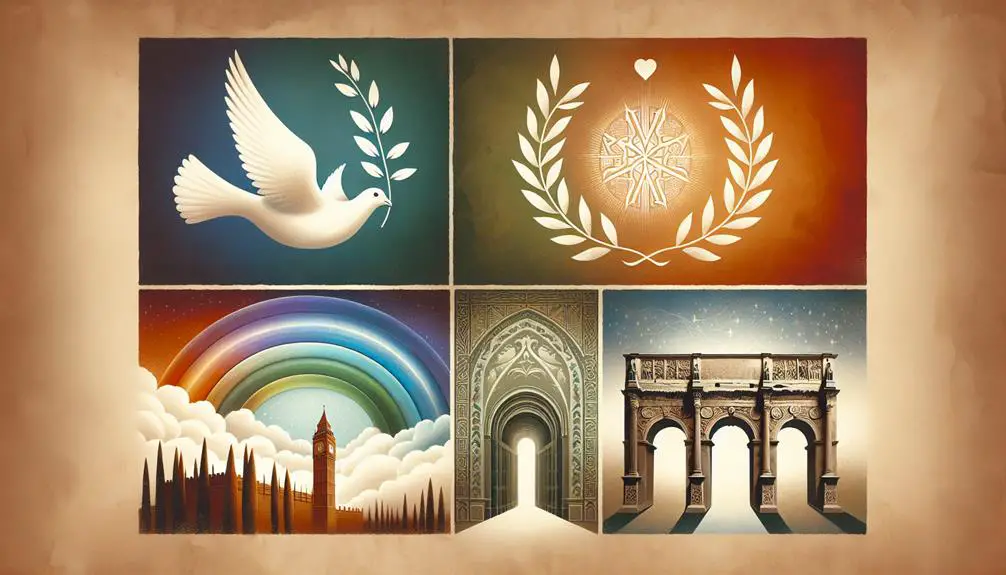
What Does the Number 4 Mean in Bible
In the tapestry of biblical narratives, the number 4 weaves itself as a symbol of completeness and universality. You'll find it painting the corners of creation with the four rivers of Eden, marking the seasons that govern life, and even in the four cardinal directions that stretch to the ends of the earth.
This number doesn't just appear by chance; it holds a deeper significance that mirrors divine order and the framework of the physical world. As we explore its appearances in biblical prophecy and stories, you'll uncover layers of meaning that might just change the way you view the world around you.
Key Takeaways
- The number 4 symbolizes completeness, universality, and divine order in biblical narratives.
- It is associated with the four cardinal directions and four basic elements, reflecting the systematic order of the material world.
- In biblical prophecy, the number 4 appears in significant symbols like the Four Horsemen of the Apocalypse and the Four Winds of Heaven.
- The cycle of four seasons and the concept of the Four Corners of the Earth underscore God's sovereignty and meticulous design in creation.
Symbolism of Creation
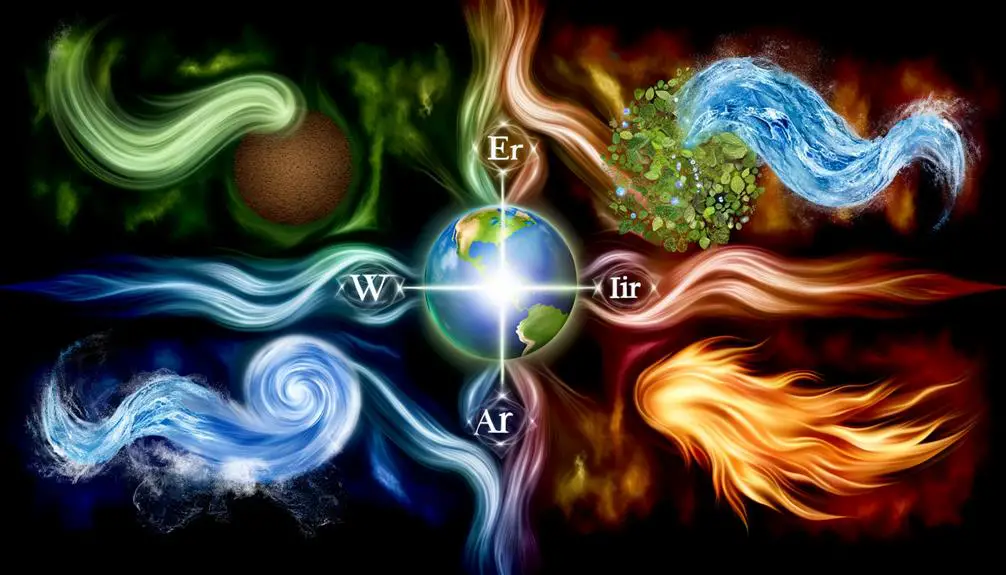
Why is it that the number 4 frequently appears in contexts related to creation within the biblical narrative, suggesting a profound symbolic significance? You'll find that in the intricate design of the Bible, numbers often carry deeper meanings, beyond their literal sense. The number 4, in particular, is emblematic of the material creation and the completeness of the world as orchestrated by the divine craftsman.
Consider the way the world itself is structured; there are four cardinal points: north, south, east, and west. These are foundational in understanding the world's geography and are crucial in the biblical descriptions of the Earth's expanse. Similarly, the ancient classification of four basic worldly elements – earth, air, fire, and water – further cements the number 4's association with the material world. These elements are considered the building blocks of creation, crafted by the divine to form the universe.
In this context, the number 4 doesn't just represent the material world but also the divine craftsman's deliberate act of creation. It's a symbol of the completeness and systematic order of the world, meticulously put together by a higher power. This number, therefore, isn't randomly recurring within the biblical text; it's a deliberate choice to signify the totality and perfection of God's creation.
As you delve deeper into the biblical narrative, understanding the symbolic use of numbers, especially the number 4, enriches your comprehension of the text. It's a reminder of the thoughtfulness embedded in the scripture, where even the smallest details contribute to a larger, divine narrative.
Representation of Universality

Moving beyond the material realm, the number 4 also embodies the concept of universality, signifying the widespread presence and influence of divine order throughout the cosmos. In the biblical context, this number doesn't just symbolize material creation but extends its meaning to represent the universal structure and order established by God. This representation of universality can be seen in various dimensions:
- World Directions: The number 4 is often associated with the four cardinal directions – north, south, east, and west. This association underlines the idea of God's sovereignty extending to all corners of the earth, illustrating a form of global completeness that encompasses every aspect of the physical world.
- Foundational Elements: Traditionally, the world is thought to be composed of four fundamental elements: earth, air, fire, and water. These elements further underscore the concept of completeness and balance within the creation narrative, highlighting the meticulous design and harmony in God's creation.
- Structural Integrity: In architecture and design, the number 4 is synonymous with stability and reliability, often represented through the four corners of a building or the four legs of a table. This mirrors the biblical portrayal of a world that's stable and ordered, not chaotic, underpinning the universal nature of God's laws.
- Spiritual Wholeness: The number 4 symbolizes not just physical universality but also a spiritual wholeness, suggesting that divine presence and governance are pervasive, reaching all aspects of creation.
Through these dimensions, the number 4 in the Bible stands as a testament to the omnipresence and omnipotence of the divine, marking the world directions and emphasizing global completeness.
Four Seasons and Divine Order
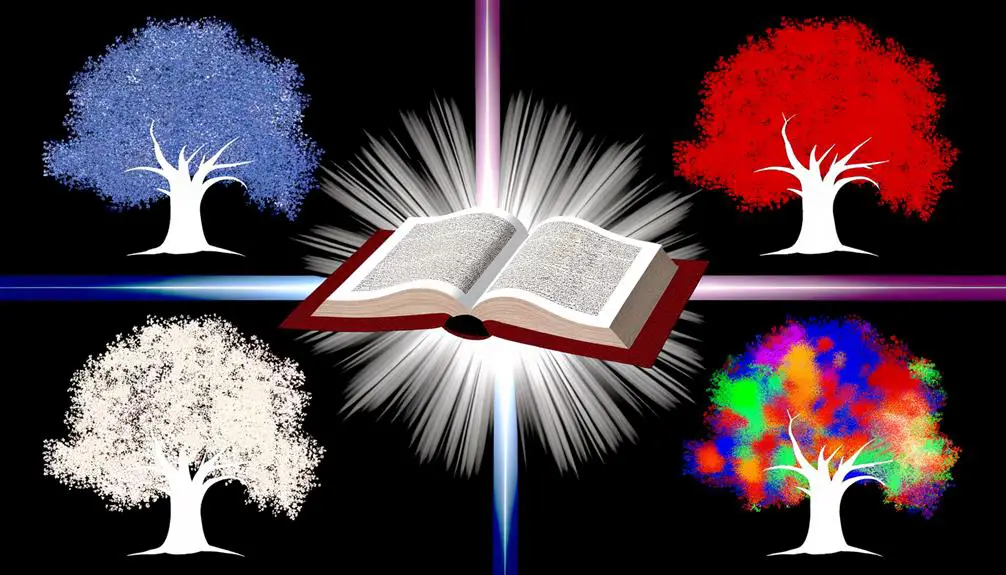
In the framework of divine order, the cycle of four seasons represents a meticulously designed system that reflects God's governance over time and change within the natural world. This cyclical pattern, embodying spring, summer, autumn, and winter, isn't just a random occurrence but a testament to a higher planning and organization. It's a divine mechanism set in motion to maintain global harmony and ensure the sustenance of life on Earth. Through this temporal balance, you witness the interplay between growth, fruition, harvest, and rest, each phase crucial for the renewal and continuation of life.
The symbolism of the number four in this context extends beyond mere numerology, offering a deeper, more profound understanding of divine order and the balance inherent in the universe. As you delve into the significance of the four seasons, it becomes apparent that they aren't merely periods of climactic change but are imbued with spiritual meaning, reflecting the meticulous care and attention to detail that governs the natural world.
This divine orchestration ensures that life thrives through a balance of light and darkness, warmth and cold, planting and harvesting. It's a perpetual cycle that sustains and nurtures the Earth, showcasing the precision and thoughtfulness of divine will. The four seasons, therefore, serve as a constant reminder of God's omnipresence and omnipotence, a symbol of the temporal balance that's essential for life and global harmony. Through this lens, the number four transcends its literal representation, embodying the perfection and order of divine creation.
Appearances in Biblical Prophecy
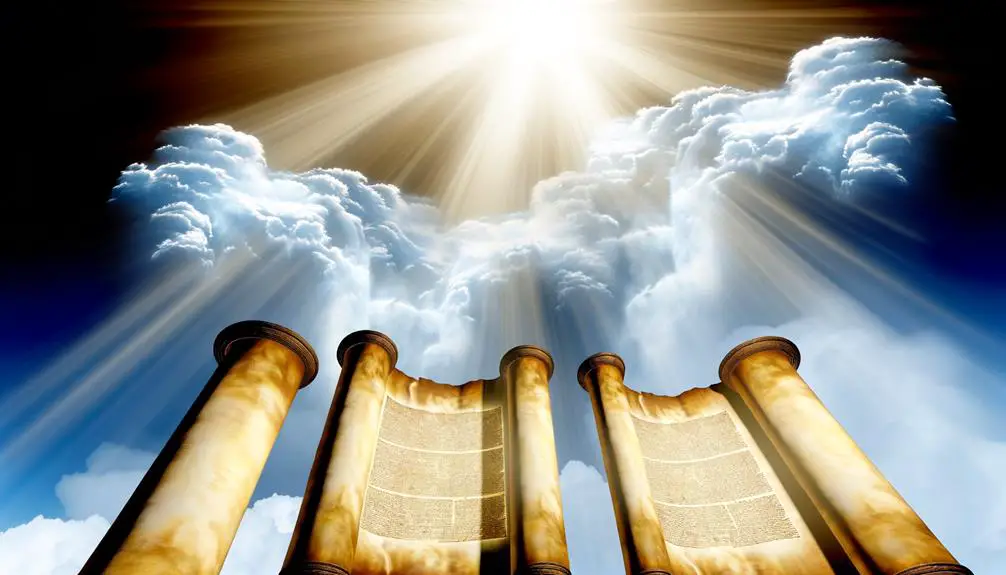
Beyond its representation in the natural order, the number four also holds significant weight in biblical prophecy, marking critical junctures in divine revelation. This numeral emerges prominently within the apocalyptic texts, where it signifies transformative events and epochs in the cosmic and human history. As you delve deeper into the eschatological narratives, you'll encounter the number four in various prophetic contexts, underscoring its symbolic importance.
Here are four pivotal appearances of the number four in biblical prophecy:
- The Four Horsemen of the Apocalypse: Found in the Book of Revelation, the Four Horsemen symbolize conquest, war, famine, and death, each riding a horse of a different color. Their emergence signifies the beginning of the end times, portraying a sequence of devastating events that precede the final judgment.
- Daniel's Visions: The prophet Daniel experiences visions featuring four great beasts, representing four successive empires that will dominate the earth. These visions provide a framework for understanding historical and future divine intervention in human governance.
- The Four Winds of Heaven: In prophetic literature, the four winds often symbolize God's judgment or cleansing of the earth. They're agents of change, heralding new eras or the destruction of the wicked.
- The Four Corners of the Earth: This phrase reflects a cosmic scope, indicating that God's reach and sovereignty extend to the entire world. In prophecy, it underscores the universality of God's judgment and salvation.
In analyzing these instances, it's clear that the number four serves as a structural and thematic cornerstone in biblical prophecy, shaping the narrative arc of divine revelation and human destiny.
Frequently Asked Questions
How Does the Number 4 Relate to the Four Horsemen of the Apocalypse in Biblical Interpretation?
In biblical interpretation, the number 4 directly connects to the four horsemen of the apocalypse, embodying four elements of cataclysm: conquest, war, famine, and death. This quartet serves as a core part of apocalypse symbolism, illustrating the comprehensive nature of end-time tribulations.
You'll find that each horseman represents distinct, yet interlinked, aspects of the apocalypse, highlighting the layered complexity within these prophetic visions. This connection underscores a broader thematic structure within biblical eschatology.
Are There Any Significant Biblical Characters or Stories Associated With the Number 4 Outside of Prophetic Literature?
You'll find that beyond prophetic texts, the number 4 carries significant meaning. Consider the story of Eden, where the Four Rivers water the garden, symbolizing life's sustenance and the spread of paradise.
Similarly, in Ezekiel's vision, the creatures have Four Faces, each representing different aspects of God's nature. These instances show how the number 4 weaves through biblical narratives, offering layers of symbolism outside the realm of prophecy.
How Has the Interpretation of the Number 4's Biblical Meaning Evolved in Modern Christian Theology?
In modern Christian theology, the interpretation of numerical symbolism, like that of the number 4, has sparked theological debates, evolving significantly.
Imagine a compass expanding in four directions; similarly, theologians explore the depth of 4's meaning, from creation's framework to universal truth.
This scholarly analysis, rich in context, reveals how numbers carry profound spiritual messages, reflecting a shift towards a more nuanced understanding of biblical numerology.
In What Ways Might the Number 4 Symbolize Aspects of Personal Spiritual Growth or Challenges According to Biblical Teachings?
In exploring personal spiritual growth or challenges, you might find the number 4 representing four virtues or spiritual seasons in your life. These could mirror the biblical symbolism, guiding you through phases of growth, testing, and renewal.
Can the Number 4 Be Linked to Specific Biblical Miracles or Divine Interventions Not Directly Related to Creation, Universality, Seasons, or Prophecy?
You might find it fascinating that the Bible is teeming with numerical symbolism, including the number 4.
Specifically, the story of the four lepers at Samaria's gate (2 Kings 7) and Moses' signs (Exodus 4) are prime examples.
These narratives aren't just random; they're steeped in divine intervention, showcasing God's power in unique ways.
Analyzing these instances, we uncover a layer of spiritual significance that transcends mere numbers, offering deeper insights into faith's dynamics.
Conclusion
In conclusion, you've seen how the number 4 serves as a cornerstone in biblical symbolism, embodying creation, universality, divine order, and prophetic appearances. It's a testament to the notion that 'as above, so below,' linking heaven and earth through its representation.
This analysis reveals the depth at which numbers hold meaning beyond their numerical value, offering a richer understanding of biblical texts. Through this lens, the number 4 isn't just a figure but a foundational element in the tapestry of sacred narratives.


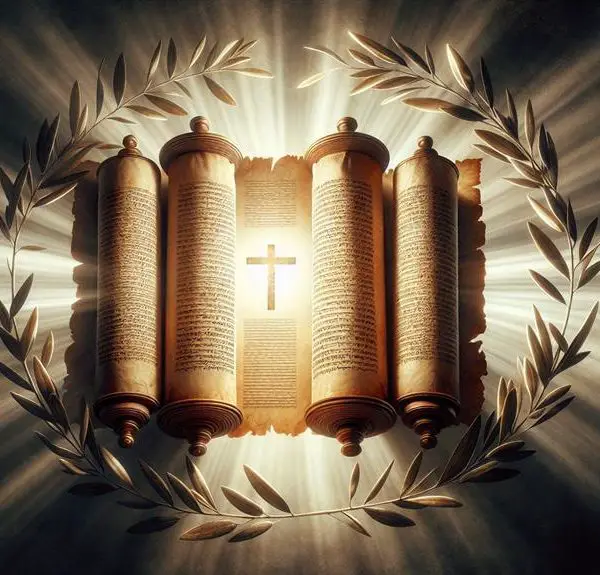
Sign up